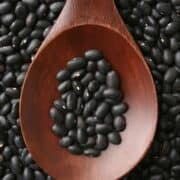
Photo by Murilo Folgosi from Pexels
It’s a simple truth: eating good food feels good. When we’ve had a particularly rough or tiring day, it’s natural to want to grab some chocolate cake on the way home. That will make us feel better, right? Wrong!!!
Chocolate cake will just lead to a sugar crash later - and, depending on your nutritional goals, may even lead to a shame spiral. Plus, if you’re eating when you’re not hungry, you’ll probably feel bloated or sick. The sugar will make you more tired, irritable, and stressed out later. That doesn’t help anyone.
Stress eating is anytime you’re eating for comfort and not because you’re truly hungry. But if you’ve been eating for comfort or for ritual for too long, you might not remember what true hunger feels like.
True Hunger vs. Munchies
Hunger Hormones
Our body uses several hormones to tell us we're hungry, but two of them are more important than the others: leptin and ghrelin.
Simply put, ghrelin tells us when to eat, and leptin tells us when to stop eating. However, there isn’t a strict number of calories to burn or wait time that increases our level of ghrelin; instead, per an article in Obesity Reviews, “ghrelin levels… seem to be influenced by age, gender, BMI, growth hormone (GH), glucose and insulin.”
Hunger Pangs
So how does this hunger feel? That’s a matter of some debate.
Some research suggests that the sensations we know as hunger are more likely symptoms of withdrawal from the typical Western diet, high in sugar and processed foods: “Sensations such as fatigue, weakness, stomach cramps, tremors, irritability and headaches, commonly interpreted as ‘hunger’, resolve gradually for the majority of people who adopt a high nutrient density diet, and a new, less distressing, sensation (which we label ‘true’ or ‘throat’ hunger) replaces it.”
We can compare this to the symptoms of hypoglycemia in patients with diabetes; hypoglycemia symptoms “[range] from unpleasant symptoms, such as anxiety, palpitations, tremor, sweating, hunger, and paresthesias, to neurological impairments, including behavioral changes, cognitive dysfunction, seizures, and coma.”
Simply put...
True hunger is a feeling in your stomach - often an emptiness or pain and a “rumbly in my tumbly”. The real desire to eat will always be a feeling in your stomach, not your brain.
Stop Stress Eating!
So maybe you’re reading this article right before your lunch break starts, and now you’re wondering whether you need to eat at all. How can you make sure you’re eating from hunger, not from stress or the simple routine of eating?
Drink up!
Water, that is. According to registered dietitian Alissa Rumsey, it's easy for your body to mistake thirst for hunger. Plus, if you're eating out of boredom, getting a glass of water will give you something to do for a minute.
Practice Mindfulness While Eating
Mindfulness - according to an article in Scientific Reports - is “paying attention to present moment experience, purposefully and non-judgmentally.” (5) Ever found yourself parked at work and can't remember driving there? That means you were driving on autopilot. It's a cool thing your brain does to save energy - but it's not so cool when you get to the bottom of a bag of chips you don't remember eating.
To eat mindfully, think about every bite you're taking. Are you enjoying this bite? Is it fulfilling your hungry desires? How does it smell, feel, taste, sound? Do you need another bite? Mindful snacking can eventually lead to less compulsive eating.
Stress Less!
It’s a tale as old as time - you’ve just been broken up with, so you invite your BFF over for a good cry and a pint of the richest, chocolatiest ice cream you can find. This is a form of stress eating. While it’s not great for you, no one is going to fault you for indulging occasionally.
However, if you live a very high-stress life and often find yourself calling for a comfort pizza, you aren’t going to be able to solve the effect (pizza) without solving the cause (your stress).
That’s why I quit my job as a VP of Growth & Demand Marketing. It was profitable - and totally ruining my mental health in the process!
Not everyone can afford to quit their jobs, though. If you’re one of those people, try to manage the stress in your life.
Lucky for you, drinking more water and practicing mindfulness can help you manage your stress outside the dinner table, too! You can also try incorporating exercise, getting 7-9 hours of sleep each night, and making time for friends, family, and hobbies.
This isn’t an exhaustive list of stress-relieving tips at all. It will take time to determine what parts of your life are stressing you out the most, and what skills (not including food!) help you wind down.
That said, be sure you know the difference between normal stress and anxiety. Stress has a trigger, and goes away after the trigger is lifted; anxiety makes you stress about things that might happen. If you're experiencing anxiety, please talk to a doctor.
Do something else!
Go on a jog, have a piece of gum, read a book, dance around your kitchen - just get your mind off the food somehow! Try making a list of which distractions work the best to fight the urge to chomp. You'll feel better about yourself - and may even lose a few stubborn pounds in the process!




















Comments
No Comments